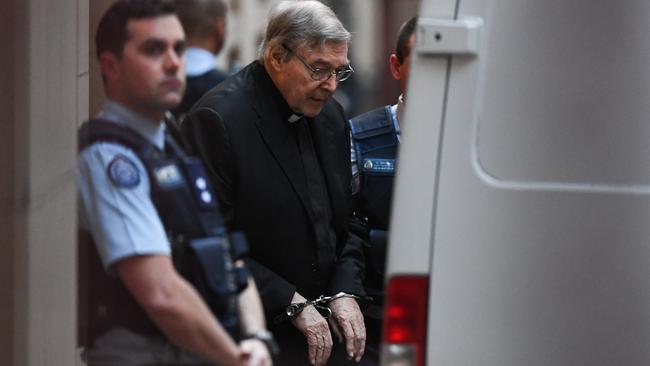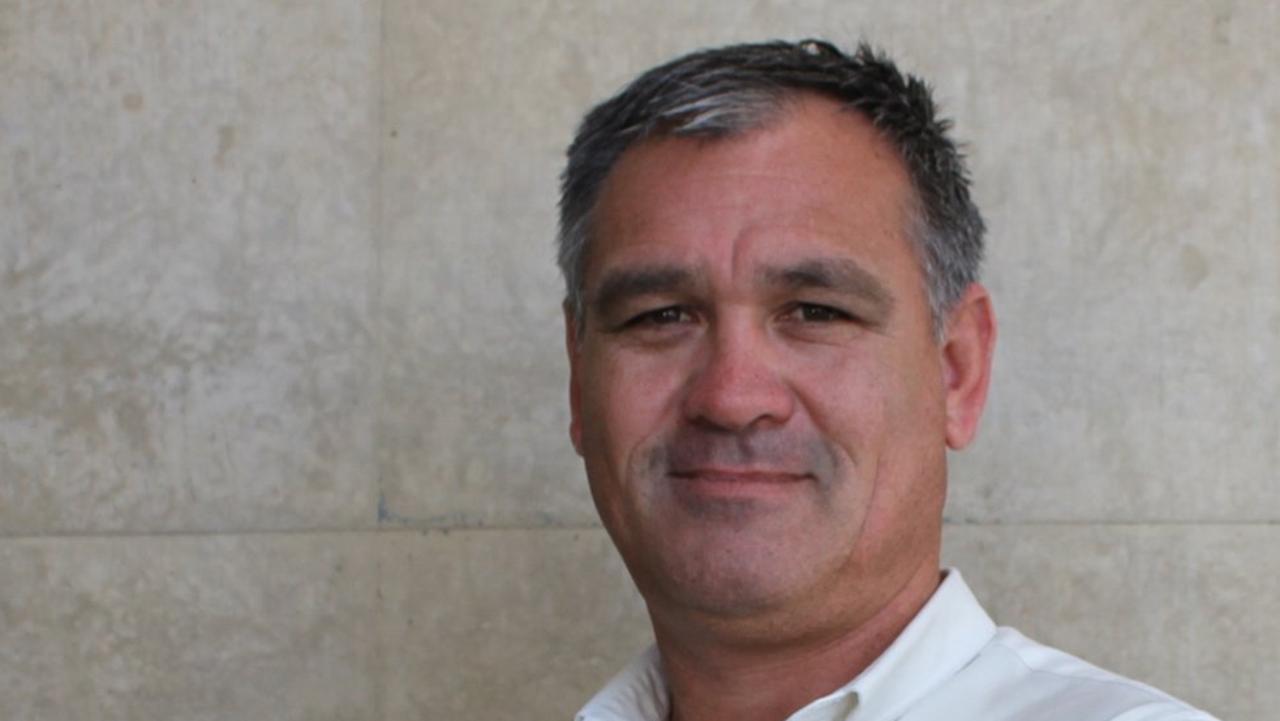‘Highly improbable’: Judges cast doubt on Pell victim’s evidence
Judges deciding George Pell’s fate call parts of his victim’s account ‘highly’ or ‘wildly improbable’.

Two of the three judges deciding George Pell’s fate have described parts of his victim’s account as “highly” or “wildly improbable” as they tested the strength of his evidence in the appeal court.
The questioning came on the second day of the cardinal’s appeal hearing during which Crown prosecutor Chris Boyce QC defended the credibility of the victim and his recollection of events in 1996, saying he was a “witness of truth”.
The Appeal Court judges in Melbourne who will now decide Pell’s fate, challenged the victim’s evidence, describing the then archbishop of Melbourne’s opportunistic rape of a 13-year-old choirboy in a cathedral sacristy after mass as “highly improbable” and a second sexual assault on the boy when he was part of a procession as “somewhat improbable”.
Pell, 77, was jailed in March for six years after being convicted by a jury of one count of sexual penetration of a child under 16 and four counts of indecent act with a child. The first incident of abuse involved two choristers in the priests’ sacristy of St Patrick’s Cathedral in East Melbourne in December 1996. One choirboy gave evidence against Pell in the criminal trial. The other choirboy died before the trial took place.
Pell was led into a prison van in handcuffs after court yesterday and will now learn the outcome of the judges’ decision while in custody.
Mr Boyce conceded there was an “element of risk” in Pell’s offending in the sacristy, which the court had heard took place with the door open over a period of about five to six minutes.
Appeal Court president Chris Maxwell said the risk involved was to be tested against the victim’s credibility.
“It’s an improbable, highly improbable thing for someone to do at all,” he said. “Most people don’t take risks which if they eventuate, will cause them great embarrassment or worse.”
Mr Boyce replied: “But some people do.”
He said it was a quintessential jury matter.
Mr Boyce had described the victim as a “very credible witness”. “He’s clearly not a liar, he was not a fantasist,” he said.
He said the three judges, Justice Maxwell, Chief Justice Anne Ferguson and Justice Mark Weinberg, could see from the video of the complainant’s evidence that the victim performed well when stressed.
“If it’s a fantasy then you would expect at some point the cracks to appear,” Mr Boyce said.
He said the man’s account placed the first episode of abuse in the middle of the priests’ sacristy, possibly within view of the door.
“If he was a liar or a fantasist it would have been so easy just to put it into the alcove area,” he said.
Justice Ferguson questioned how much weight should be given to the victim’s account.
“Really what you’re saying is that the complainant’s evidence was so strong, was so forceful, so credible, such that he was a witness of truth, beyond what you might see in other cases, that it’s going to take a lot to create a reasonable doubt,” she said.
Mr Boyce agreed but said it was hard to compare with other cases.
On the first day of the appeal Pell’s barrister Bret Walker SC gave heavy weight to the account of Monsignor Charles Portelli who said Pell’s practice was to greet parishioners on the front steps of the cathedral after Sunday mass and therefore couldn’t have been in the sacristy at the time of the offending.
Mr Boyce said the alibi that Pell was meeting parishioners was not “cast iron” and Mr Portelli’s memory of events 20 years ago became “far more clear” when he was cross-examined by Pell’s legal team. However he stopped short of calling Mr Portelli a liar, instead saying there was a clear conflict between his evidence and that of the victim.
The appeal court judges also examined evidence from the trial about why the victim didn’t tell anyone about the abuse and why he didn’t tell the other boy, who is now dead, about a second incident in the cathedral about a month later in which Pell pushed him up against a wall and grabbed his genitalia.
Justice Maxwell asked what the court should make of the surviving chorister’s account that he didn’t warn the other boy that Pell had abused him again. “Boys talk, don’t they?” he said.
Mr Boyce said boys also wanted to get on with their lives, “playing footy or doing whatever it is they want to do”.
Justice Maxwell said people reacted to sexual assault differently. “Someone might in distress, speak immediately to someone,” he said. “Someone in distress, might not.”
Mr Boyce said the second incident lasted just one to three seconds in the sacristy corridor. He said the short timeframe meant it might not be “too surprising” that no one saw the offending.
Justice Weinberg said the opposing argument was that the archbishop was conspicuous by his height and robes. He added Pell had no reason to be in the midst of the choristers, and the victim would have been at the front of the procession.
“The argument against you of course is, that it’s just so wildly improbable that the Archbishop conspicuous by his height and his dress, would not have been seen approaching at very close quarters, a choir boy,’’ Justice Weinberg said.
“To get to him, he would have had to get past or move past a whole bunch of choirboys. It’s more than just risk.”
The court has reserved its decision.


